Do you want to plan a whole-school science day? We have a mystery for the whole school to solve! The children will practise their observational skills and learn about the job of a forensic scientist.
Before the pupils come in, set up a crime scene. The crime is that someone has eaten the last cookie from the staffroom. You will need to decide which member of staff is the culprit and plant the evidence accordingly. There will be lots of clues; a handwritten note, some footprints, a glass with clear fingerprints on. The crime scene will need to be in an area that the whole school can visit and access during the day. You could set it up in the hall and have a whole-school assembly to explain the crime. The evidence could then be put on a crime scene board and each year group given one piece of the evidence to investigate, just like forensic scientists.
Check out our detective science issue!
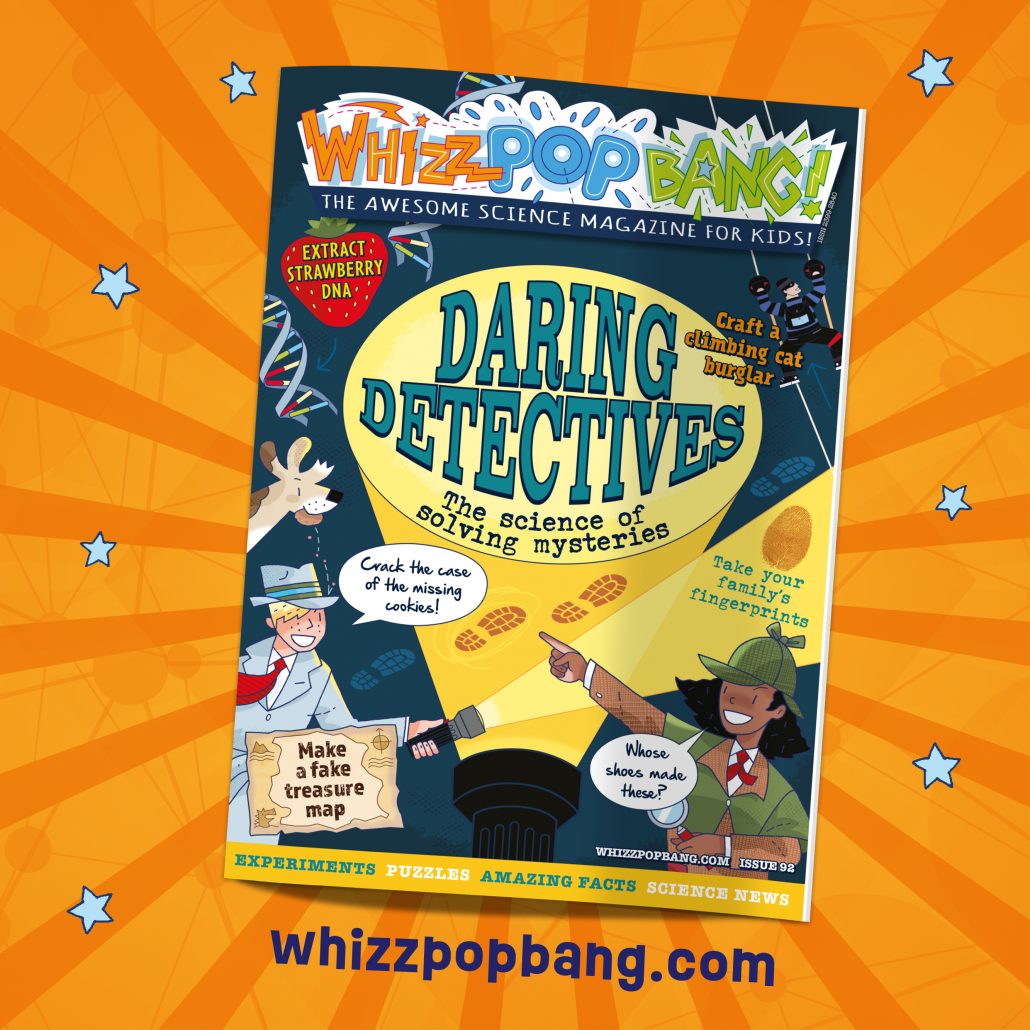
F2
Part of crime detection is looking carefully for clues. Pupils could play lots of games in which they must spot the odd one out; for example, fill two trays with objects so they look identical, but with something missing from one tray – can they spot it?!
Year 1
They will investigate footprints. Pupils will first compare their shoeprints to find out if they are the same. They could then ask all the members of staff for their shoeprints. Can they match any of them to the ones at the crime scene?
Years 2 and 3
They will be taking fingerprints. Are all of our fingerprints the same? Discuss how they are unique. Follow these instructions to take fingerprints.
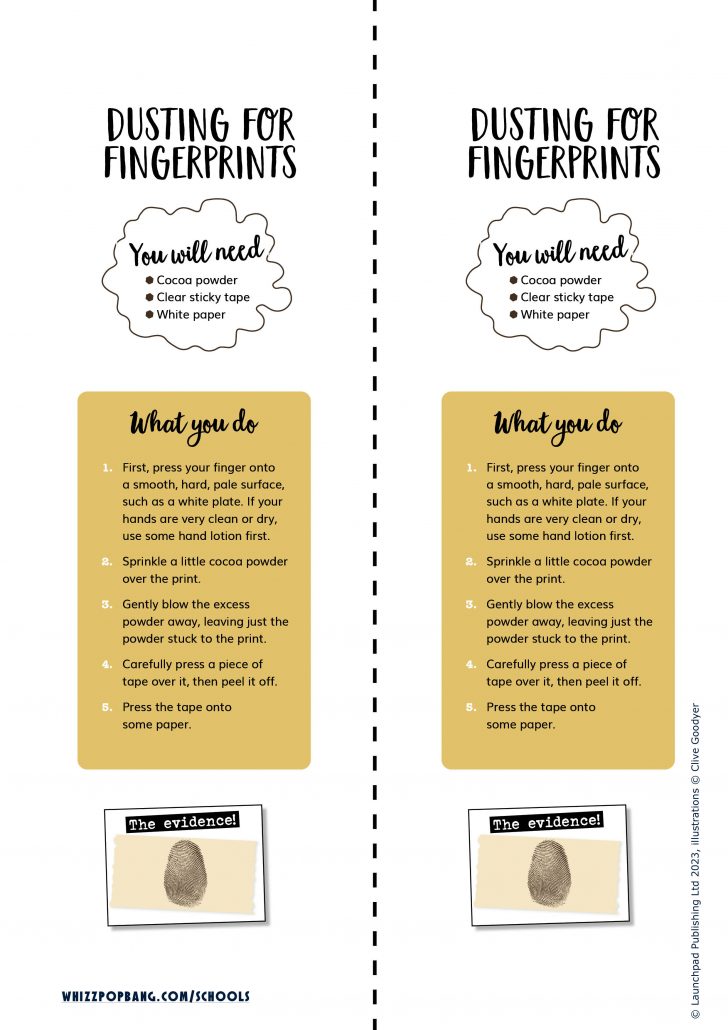
Year 3 pupils could take the fingerprints of all the staff members and see if they can match any of them to the ones at the crime scene.
Years 4 and 5
Can they match a pen to the note from the crime scene? Give pupils a selection of pens, each one belonging to a different member of staff. (You will need to use water-soluble pens for the test to work.) In the crime scene, make sure there are some pieces of kitchen roll with ink spots on them, which match the note left by the cookie-stealing culprit.
Pupils will try out chromatography. You will demonstrate how to do it and then they will test the staff members’ pens, making sure they work methodically to ensure it is a fair test. Do any of the pens match the clue in the crime scene?
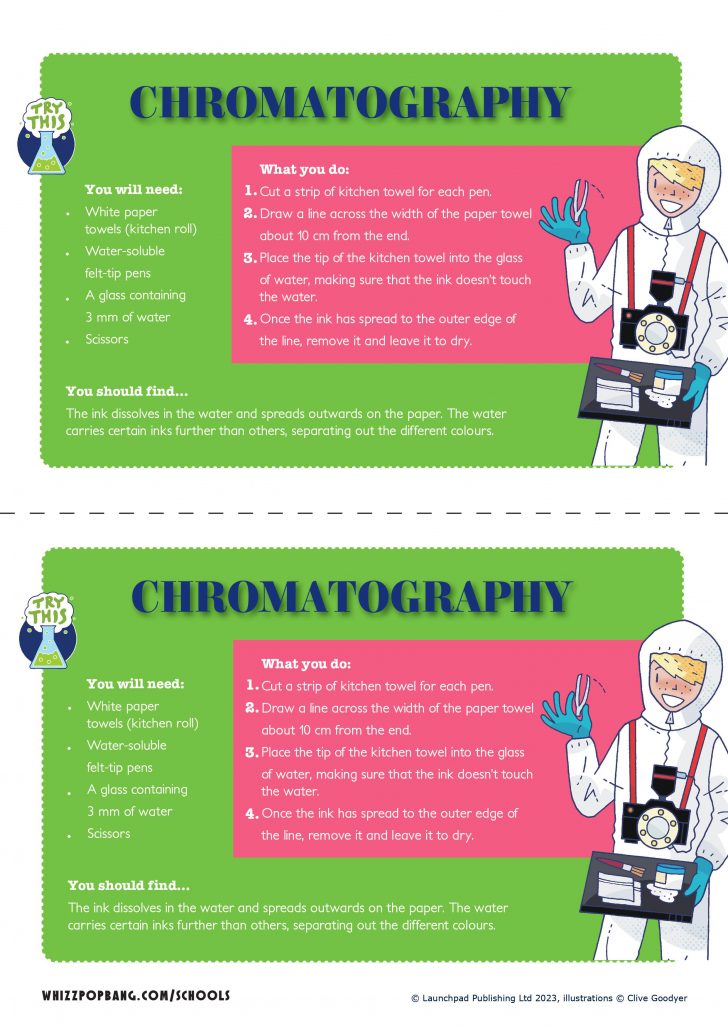
Year 6
They should already know that humans are all different and that we carry characteristics from our parents. Explain that we all have DNA – in fact, all living things have DNA – and that it can be used to help to solve crimes. Scientists can extract DNA from all sorts of evidence, including hairs, fibres, etc. Explain that it would require specialist equipment to do this, but we can extract a DNA strand from a strawberry.
Download our lesson pack here for the full instructions:
At the end of the day, bring the whole school back together. Ask each class if they think they know who took the last cookie. Work through the crime scene board and see if they all came up with the same member of staff. Did they manage to solve the crime?
As part of the day, pupils might like to read about some real-life detectives or some animal thieves. Check out these reading comprehensions available to download from our website:
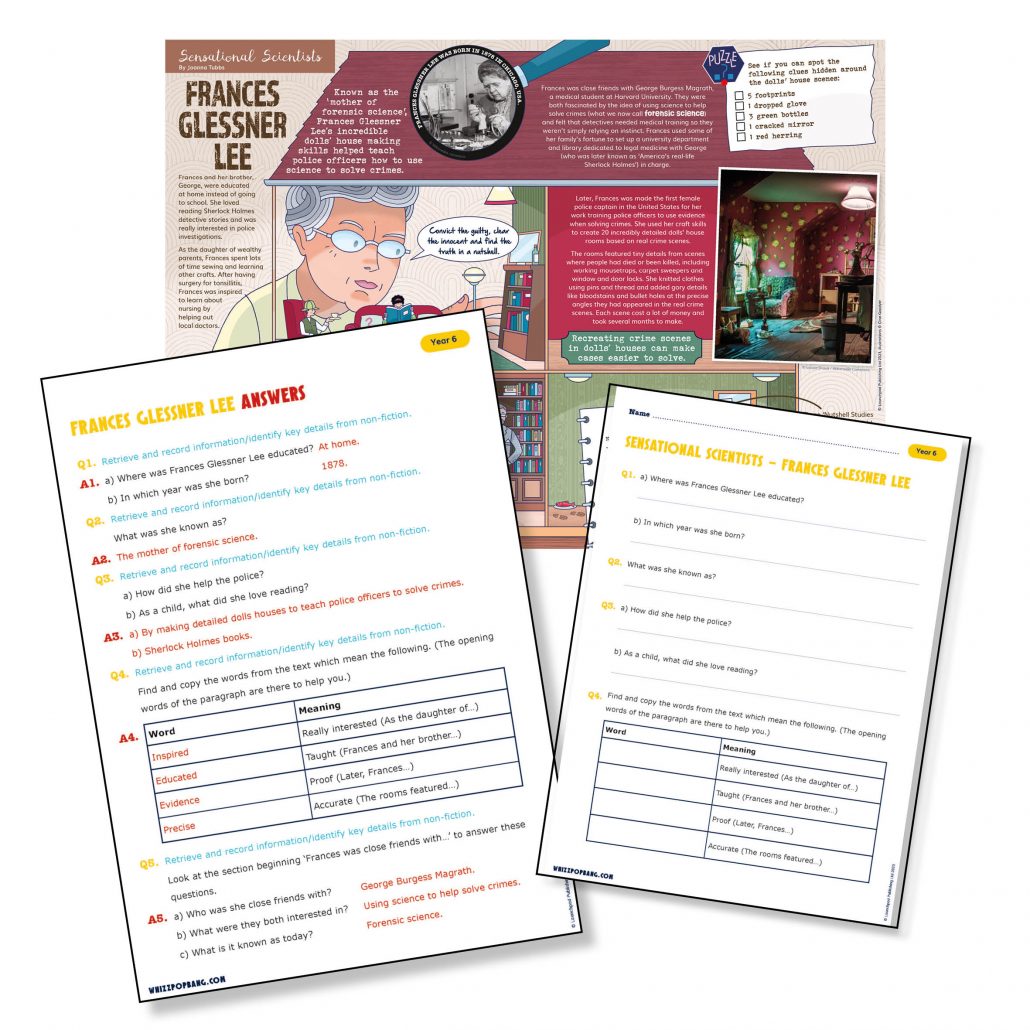
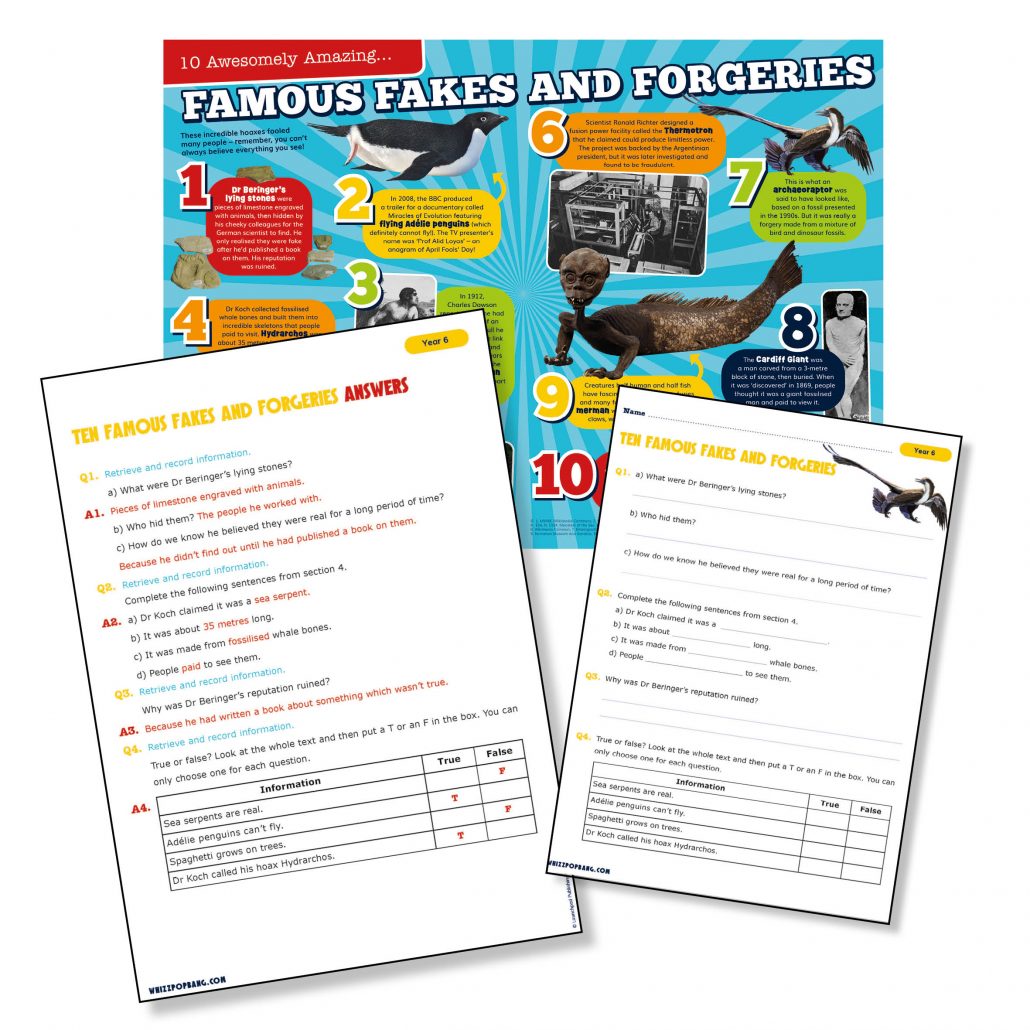
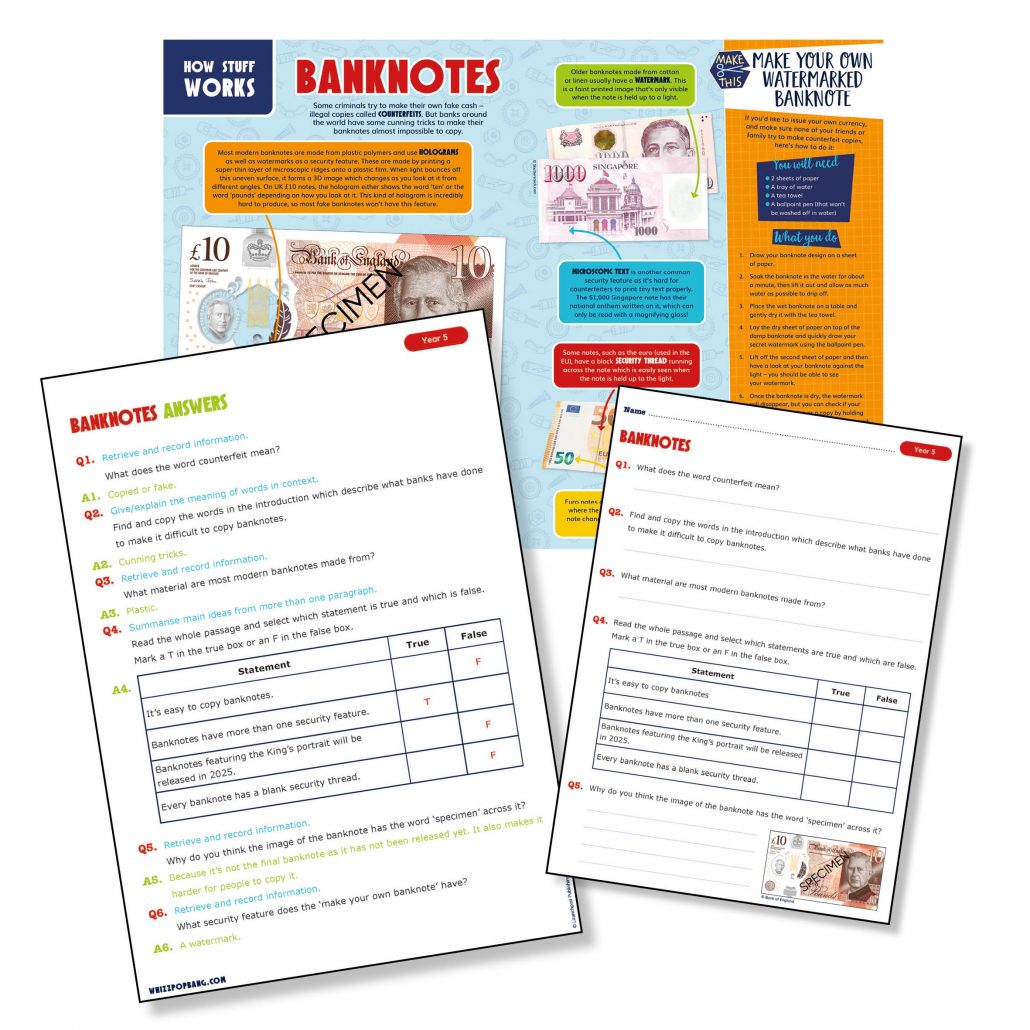
Whizz Pop Bang magazine and teaching resources are brilliant ways to enhance your school’s science teaching:
- We provide downloadable science lesson plans, PowerPoint presentations, hands-on investigations and science reading comprehensions written by primary school teachers.
- Whizz Pop Bang teaching resources link to the National Curriculum, ensuring correct coverage.
- All of our resources are year group specific, ensuring progression between the years.
- We make cross-curricular links to other subjects, such as English, Maths, History, Geography, Art, Design and Technology and PSHE.
Prices from as little as £197.99 per year for a copy of Whizz Pop Bang magazine through the post each month and whole-school access to our ever-growing library of downloadable teaching resources, with unlimited teacher logins.
We’ve also launched a new individual membership option so teachers and home educators can access all of our amazing downloadable resources for just £20 for the whole year.

